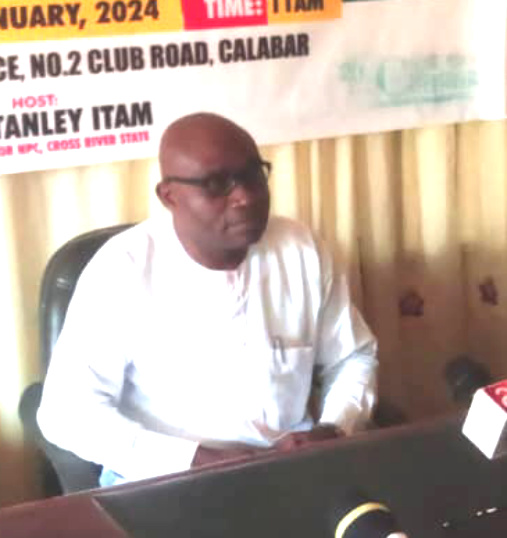By Ita Williams
The National Population Commission (NPC) in Cross River State has stepped up preparation for a successful conduct of the 2023-24 National Demographic and Health Survey (NDHS).
The State Director of the NPC, Mr. Stanley Itam, in a press briefing held in Calabar, emphasized the importance of the NDHS, explaining that the NPC was collaborating closely with the Federal Ministry of Health and other key stakeholders to ensure the success of the survey.
He noted that training of mappers, listers, and interviewers is a crucial part of the NDHS exercise, and it would serve as a framework for the survey.
Mr. Itam highlighted the objectives of the NDHS to include accurate data on fertility rates, maternal and child health, contraceptive use, childhood mortality, gender-based issues, nutrition, and HIV/AIDS awareness.
The data collected through the NDHS, he said, would be instrumental in supporting and evaluating child health and family planning programs as well as enable evidence-based planning and resource allocation, ensuring that policies and interventions were targeted and effective.
He also stressed the importance of strengthening Nigeria’s capacity for data collection, analysis, and utilization and that by enhancing national ownership of the process, the country could effectively address demographic and health-related social needs.
“The collected data will not only assist in developing equitable growth strategies but also tackle social poverty and align with national development priorities,” he submitted.
Also speaking, Mrs. Agu Glory, a team supervisor for the NDHS program, shed light on its implementation, noting that the survey follows a sample-type approach and is scheduled to be carried out in 16 out of the 18 Local Government Areas (LGAs) in Cross River State.
She said: “This comprehensive coverage will provide a solid representation of the state’s population, enabling a more accurate assessment of health and demographic indicators.
“The significance of the NDHS cannot be overstated. It will provide a comprehensive and up-to-date understanding of the health and population dynamics in Nigeria. This data-driven approach will inform policies and interventions, ensuring that they are tailored to the needs of the population.
“As preparations for the NDHS continue, the NPC and its partners are committed to executing a successful survey.
“The collaboration between the NPC, the Federal Ministry of Health, and other stakeholders highlights the collective effort to enhance the health and well-being of the Nigerian population.
“With the potential to shape policies and programs for years to come, the NDHS rHepresents a significant step forward in improving healthcare and population monitoring in Nigeria.
“The exercise started last year in Calabar South local government area and will continue in other local government areas of the state.”
